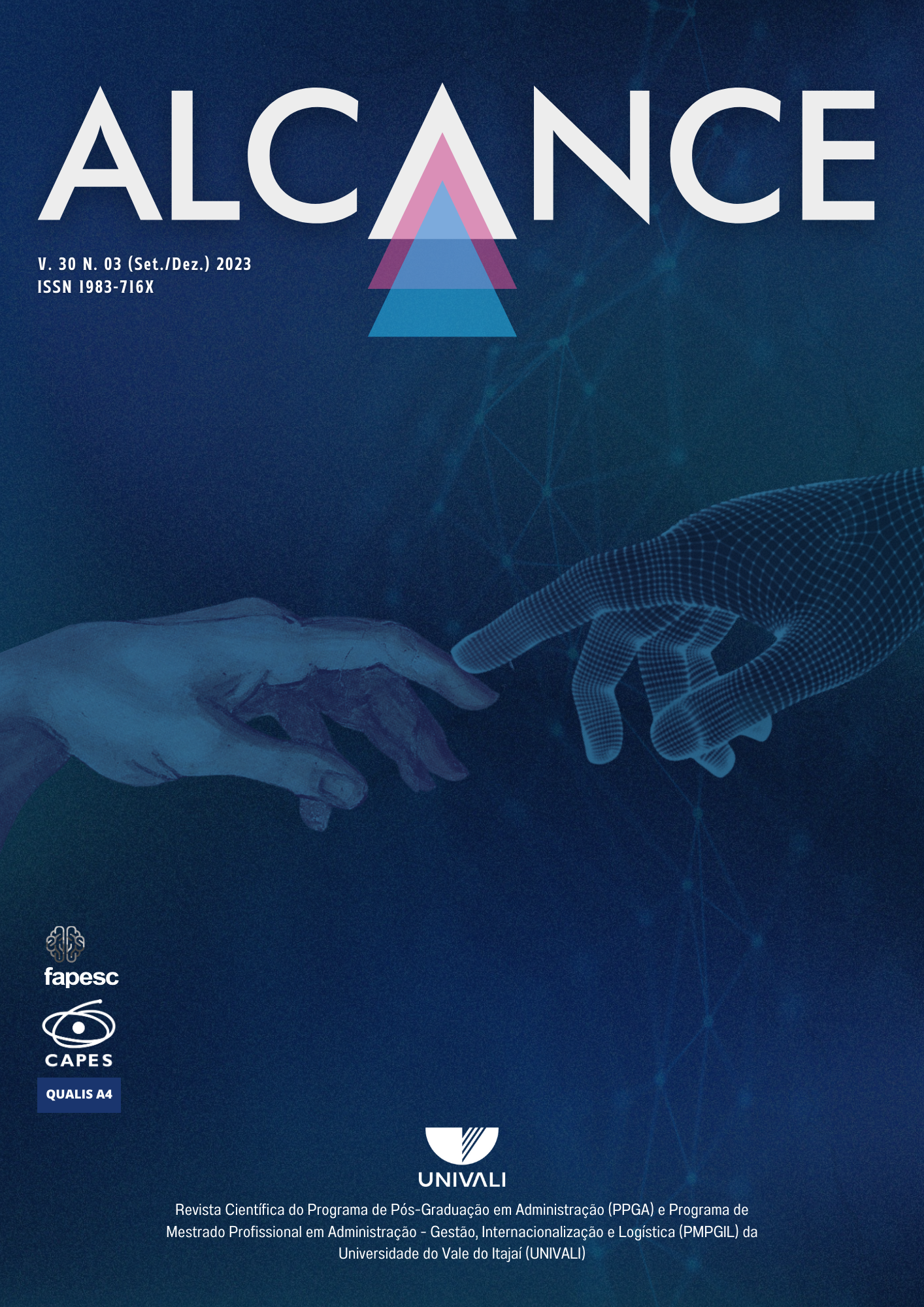
Objective. Examine the institutional mission statement and constituent strategy of the Federal Institutes of Education, Science and Technology in Brazil.
Design/method/perspective. The study is descriptive with a qualitative approach. We used the model presented by Pearce and David (1987) regarding the effectiveness of the mission model. We separated the research approach into two groups. First, we linked to hermeneutic analysis. The second group deals with the mission statement's effectiveness by identifying the elements.
Results. We evidenced the low presence of the elements recommended by Pearce and David (1987), not even reaching half of the elements defined in the model. The normative aspects are, in percentage, the most addressed.
Practical implications. There is a significant gap between what someone advocated in the Federal Institutes' mission statements and the strategy that gave rise to their creation.
Originality/value. The originality of this article lies in the selection of educational institutions analysed since there is a significant volume of studies focused on higher education institutions but not on the complete set of Federal Institutes. Another distinctive aspect of this research concerns the analysis of the alignment of the mission statements with the strategy that gave rise to the creation of the Federal Institutes, the expansion, the internalisation and the increment of professional and technological education.




Araújo, M. A., Michelon, P. D. S., & Lunkes, R.J. (2018). Missão institucional: análise dos elementos de Pearce II (1982) na missão das universidades públicas brasileiras. Revista Ambiente Contábil, 10(2), pp.114-130.
Bart, C. K. (2006). Mission profitable. The Canadian Manager, 31 (3), pp.20.
Breznik, K., & Law, K. M. (2019). What do mission statements reveal about the values of top universities in the world?. International Journal of Organizational Analysis 27, pp. 1362–1375.
Cortés, J. D. (2018). Mission statements of universities worldwide: Text mining and visualization. Intangible Capital, 14(4), pp. 584-603.
Cortés, J. D., Rivera, L., & Carbonelld, K. B. (2022). Mission statements in universities: Readability and performance. European research on management and business economics, 28(2), pp. 100-183.
Deus, R. M., Battistelle, R. A. G., & da Silva, G. H. R. (2016). Sustainability insights from the mission statements of leading Brazilian Universities. International Journal of Educational Management, 30(3) pp. 403-415.
Diehl, C. A. (2004). Controle estratégico de custos: um modelo referencial avançado (Doctoral dissertation). Federal University of Santa Catarina. Florianopolis.
Ellis, J., & Miller, P. (2014). Providing Higher Education in Post-modern Times: what do university mission statements tell us about what they believe and do?. Research in Comparative and International Education, 9(1), pp. 83-91.
Forte, S. H. A. C., & Pereira, M. S. (2003). A construção e disseminação da missão nas instituições de ensino superior no Ceará. Revista Gestão & Tecnologia 2(1). DOI: https://doi.org/10.20397/2177-6652/2003.v2i1.128
Freitas, C. L., Espindola, E. E., Lunkes, R. J., & Pfitscher, E. D. (2019). Efetividade das declarações de missão institucional: Análise das declarações das instituições federais de ensino superior (IFES). Revista Gestão Universitária na América Latina-GUAL, 12(1), 97-117.
Haberkamp, A. M., Hoppen, N., & Diehl, C. A. (2018). The Mission As A Driver For Strategy Formulation In Higher Education Institutions. Revista Alcance, 25(2), pp. 126-141.
Kalkan, A., Bozkurt, O. C., Oztop, S., & Cesmeli, M. S. (2015). Strategic management approach in the metropolitan municipalities in Turkey: An analysis on the statements of mission, vision and core values. Journal of Global Strategic Management, 9(1), pp. 65-74.
Lopez, Y. P., & Martin, W. F. (2018). University mission statements and sustainability performance. Business and society review, 123(2), pp. 341-368.
Martins, V., Diehl, C. A., & Brunozi Junior, A. C. (2018). Declaração de missão em países latinoamericanos: efetividade e fatores contingenciais. Advances in Scientific & Applied Accounting, 11(3), pp. 464-483.
Mussoi, A., Lunkes, R. J., & Da Silva, R. V. (2011). Missão institucional: uma análise da efetividade e dos principais elementos presentes nas missões de empresas brasileiras de capital aberto. REGE-Revista de Gestão, 18(3), pp. 361-384.
Pacheco, E. (2020). Desvendando os Institutos Federais: identidade e objetivos. Educação Profissional e Tecnológica em Revista, 4(1), pp. 4-22.
Pearce, J. A., & David, F. (1987). Corporate mission statements: The bottom line. Academy of Management Perspectives, 1(2), pp. 109-115.
Seeber, M., Barberio, V., Huisman, J., & Mampaey, J. (2019). Factors affecting the content of universities’ mission statements: an analysis of the United Kingdom higher education system. Studies in Higher Education, 44(2), pp. 230-244.
Simons, R. (1995). Levers of control: how managers use innovative control systems to drive strategic renewal. Boston, Mass: Harvard Business School.
Simons, R. (2000). Performance measurement & control systems for implementing strategy: text & cases (Doctoral dissertation, Univerza v Mariboru, Ekonomsko-poslovna fakulteta).




This work is licensed under a Creative Commons Attribution 4.0 International License.






Revista Alcance is a Brazilian free access journal, published every four months, linked to the Graduate Program in Administration and the Professional Master’s degree in Administration, Internationalization and Logistics Program of the University of Vale do Itajaí – Univali. We seek to publish theoretical-empirical and technological articles in the areas of Business Administration. Different theoretical and methodological perspectives are welcome, as long as they are consistent with and relevant to the development of the area.

